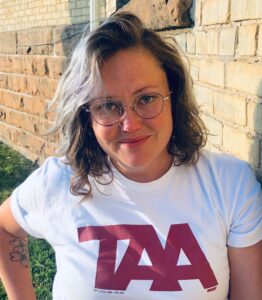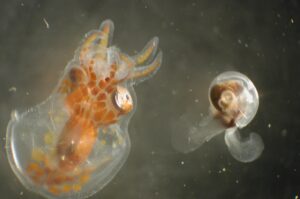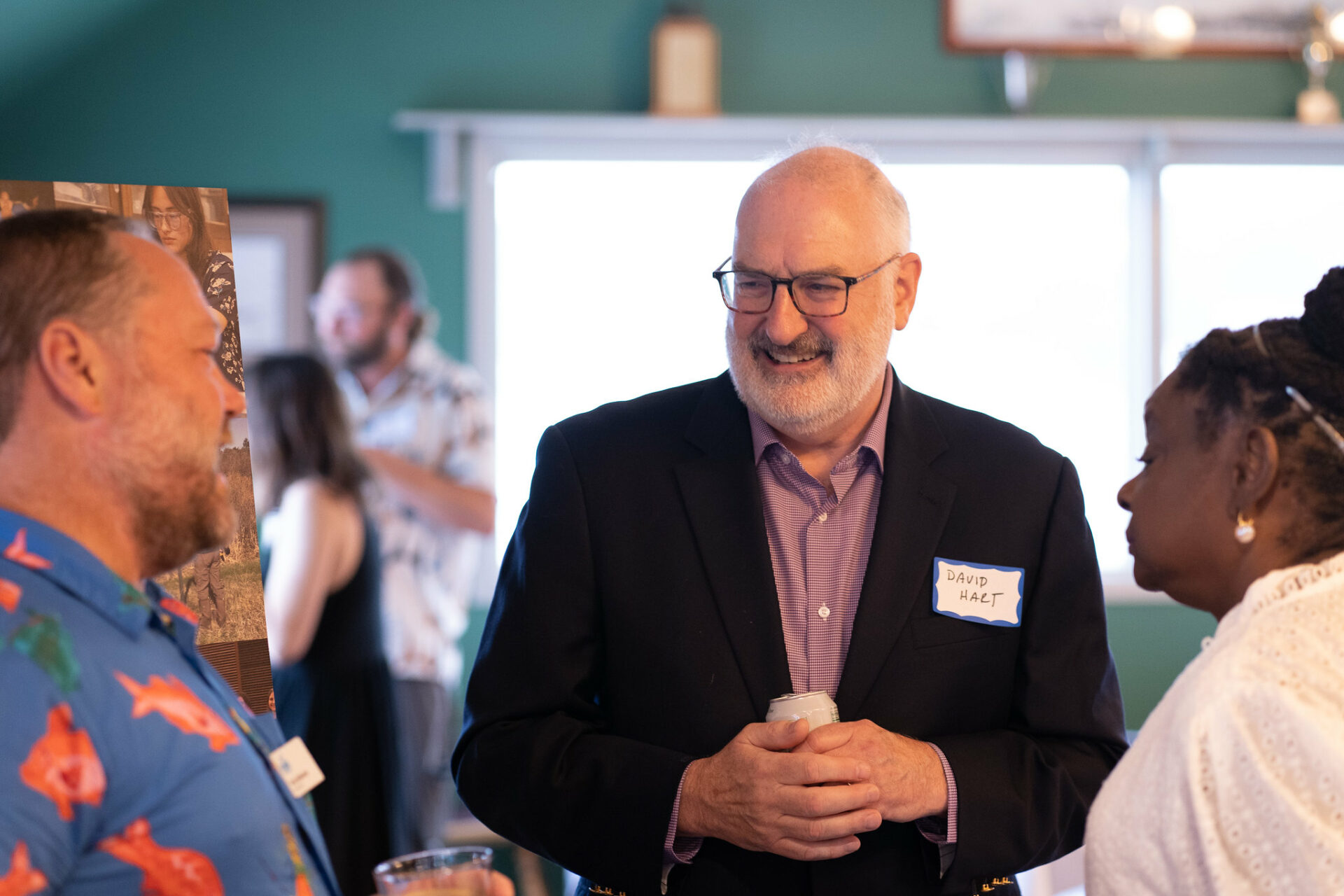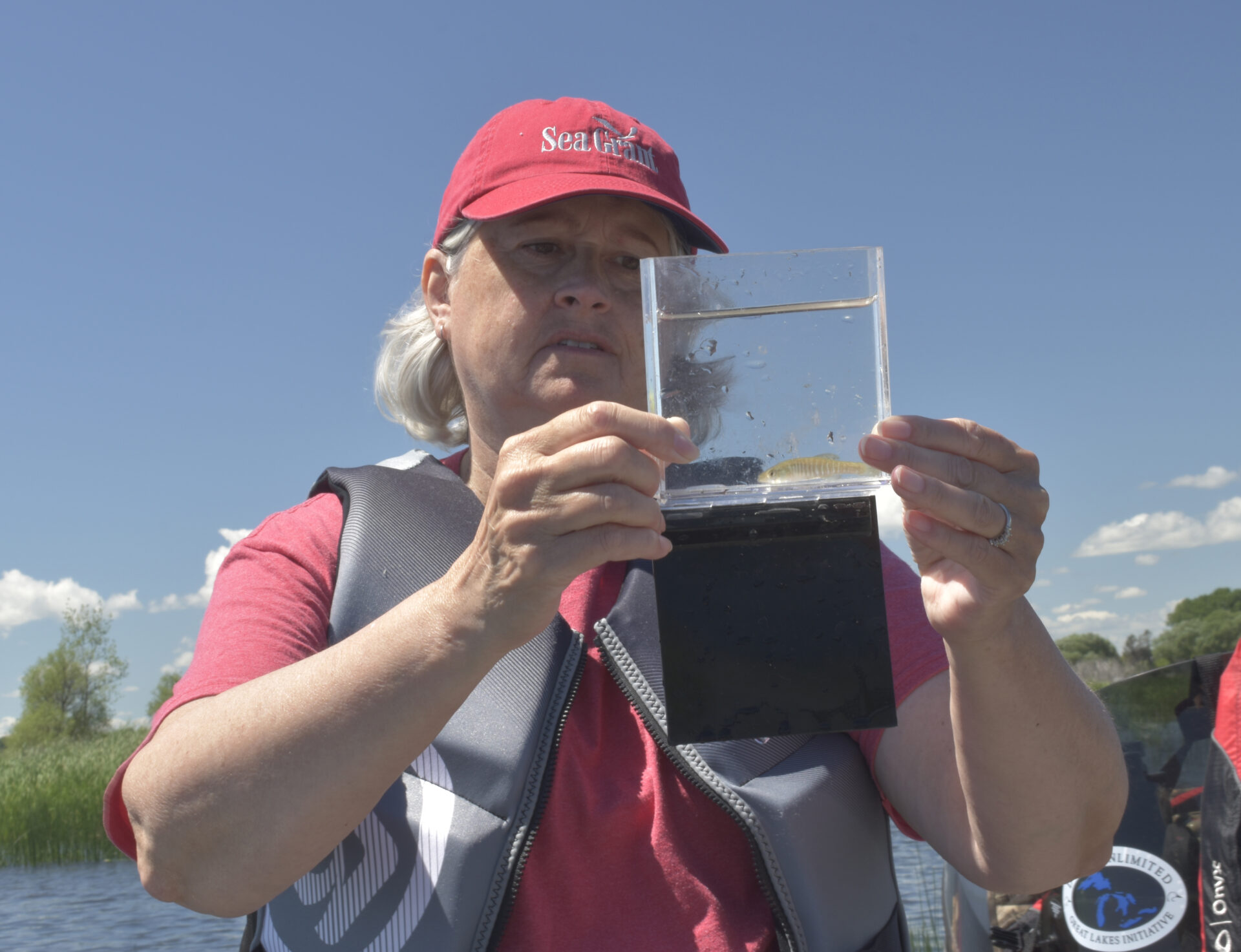By Eva Ryan, University of Wisconsin-Madison
The Sea Grant Knauss Fellowship program is a nationally competitive opportunity that sends graduate students interested in ocean, coastal and Great Lakes resources and policy to the hub that is Washington, D.C. There, these students are paired with a congressional member or committee in order to learn more about the policies surrounding our natural resources.They can also be paired with a federal agency or program.
This year, four women supported by Wisconsin Sea Grant were chosen as Knauss finalists. Among these four is Samm Newton, a Ph.D. student at the University of Wisconsin-Madison, in the History of Science, Medicine and Technology Program.
 “When it comes to understanding what I study in history, which is the intersection of science, policy and the environment, I’m looking at how science and technology have influenced how we think and make decisions about the ocean,” Newton said, “Thinking through those questions with oceans gives unique perspectives because it’s a place where people don’t generally live and there are ambiguous delineations in territory and sovereignty.”
“When it comes to understanding what I study in history, which is the intersection of science, policy and the environment, I’m looking at how science and technology have influenced how we think and make decisions about the ocean,” Newton said, “Thinking through those questions with oceans gives unique perspectives because it’s a place where people don’t generally live and there are ambiguous delineations in territory and sovereignty.”
Newton’s appreciation of the ocean spans back to her childhood living in coastal Texas, and remains a deep-rooted passion of hers today. As a historian and environmentalist, Newton has a long-standing interest in studying the role of pteropods, invertebrates also known as a sea butterflies and in the same class as snails and slugs, in communicating changing ocean conditions.

Samm Newton studies pteropods (one pictured on the right) as a keystone species for ocean health. Photo: Matt Wilson and Jay Clark, NOAA
However, when it comes to the ocean, “There’s a layering of knowledge-making that happens. You can’t just look at chemical oceanography via pteropods; you can’t just look at biological oceanography via fishery science,” said Newton, “All of these processes are happening in a layered, integrative way.”
Despite an already impressive list of academic achievements, Newton’s ambition remained at full throttle as she packed up her things, eager to begin the Knauss Fellowship in Washington, D.C., which kicked off earlier this month. She will be working in the office of Sen. Jeff Merkley of Oregon.
Newton first heard about the Knauss Fellowship while participating in an National Science Foundation National Research Trainee Fellowship at Oregon State University. There, she completed her master’s degree while simultaneously participating in a training program focused on interdisciplinary work. Newton described the experience as “eye-opening” and took away the idea that “collaborative, contemporary experiences make [her] a better historian.”
Working with members of Oregon State University’s marine resource management program, Newton was no stranger to the words “Knauss Fellowship.” She views the fellowship as an opportunity to both become a better historian as well as to show people the value of having historians work on applied environmental problems.
A historian first and foremost, Newton continues to dismantle preconceived notions that there is no place for the humanities in the world of science. Because of her nontraditional area of study, Newton brings human dimensions to scientific programs. This allows her to bring new perspectives and depth to the table.
“I really want to open up pathways for people to have the kinds of opportunities I’ve had,” she said.





